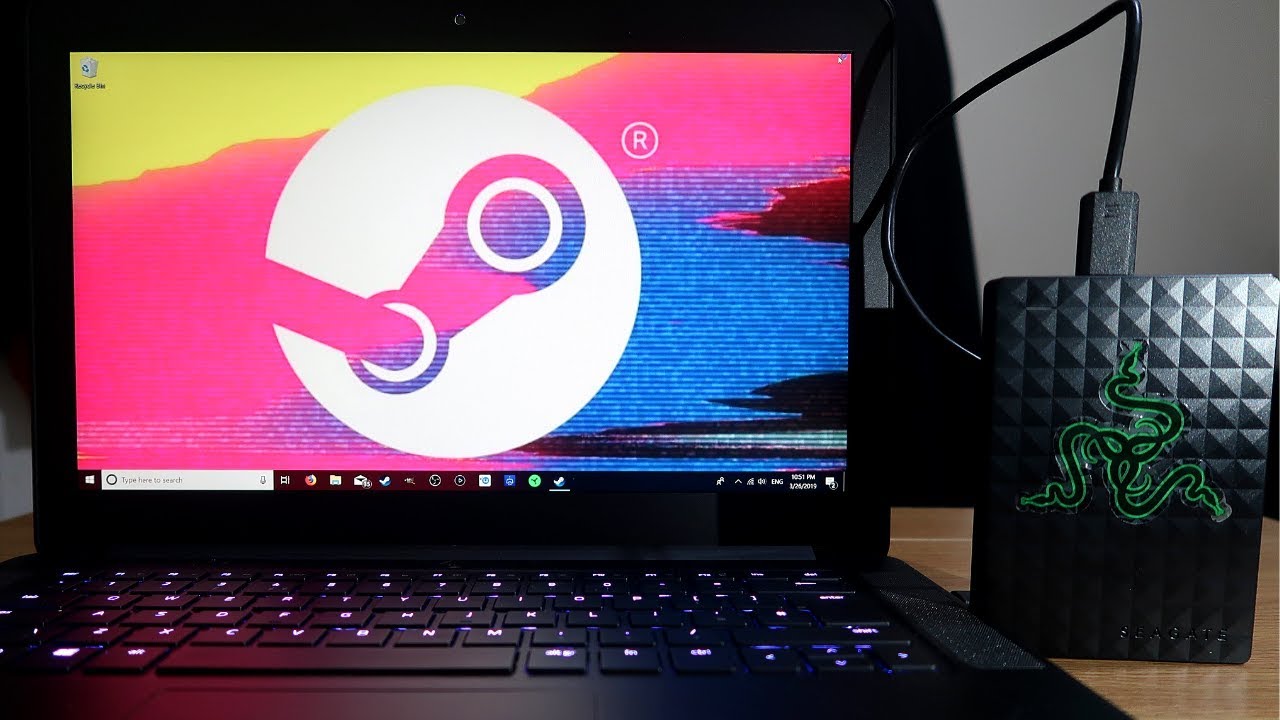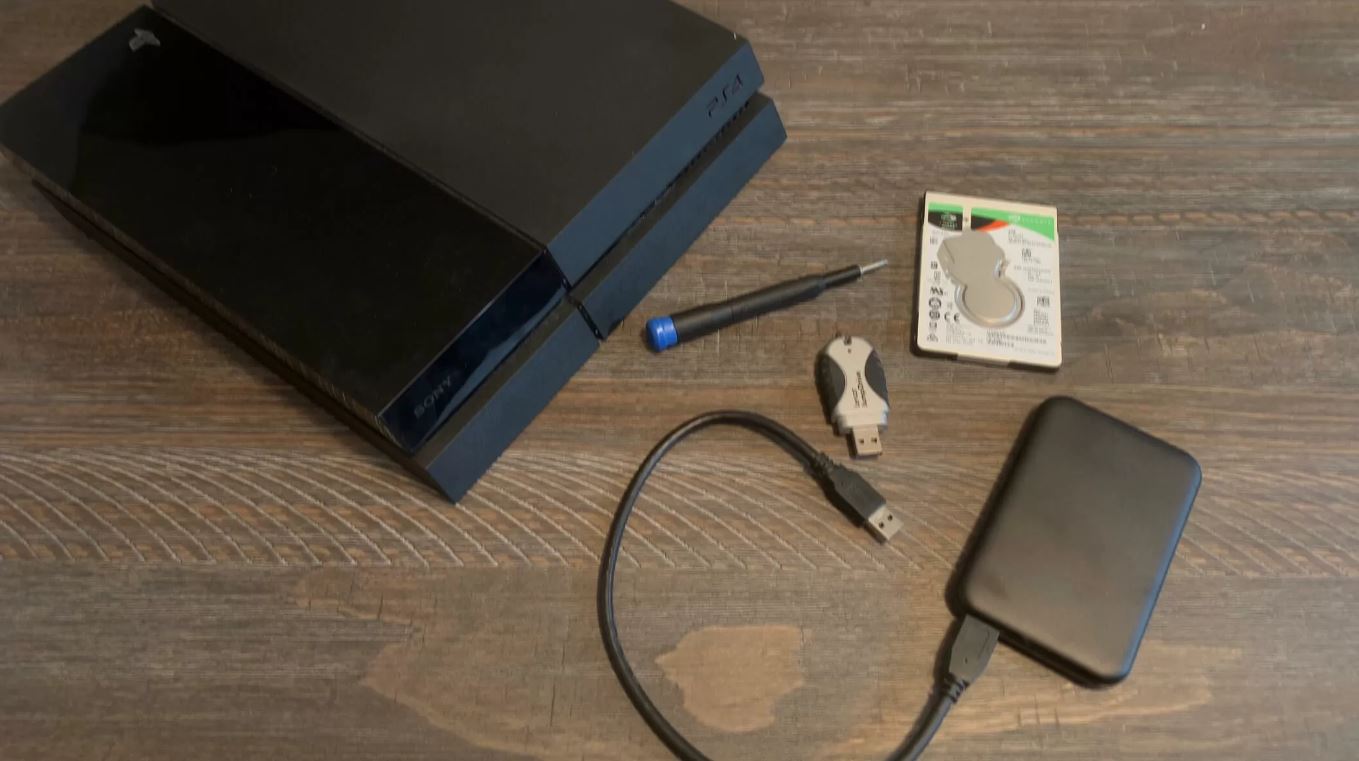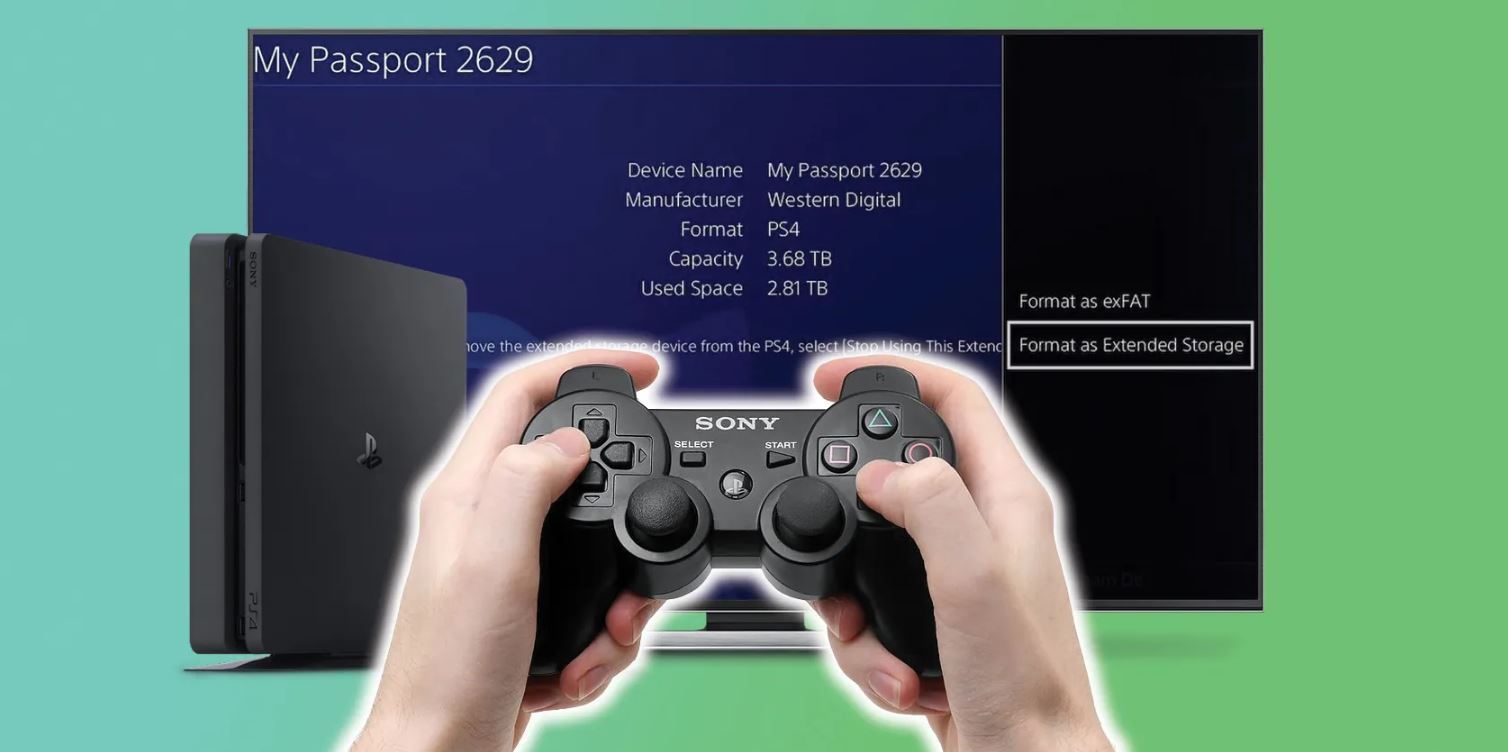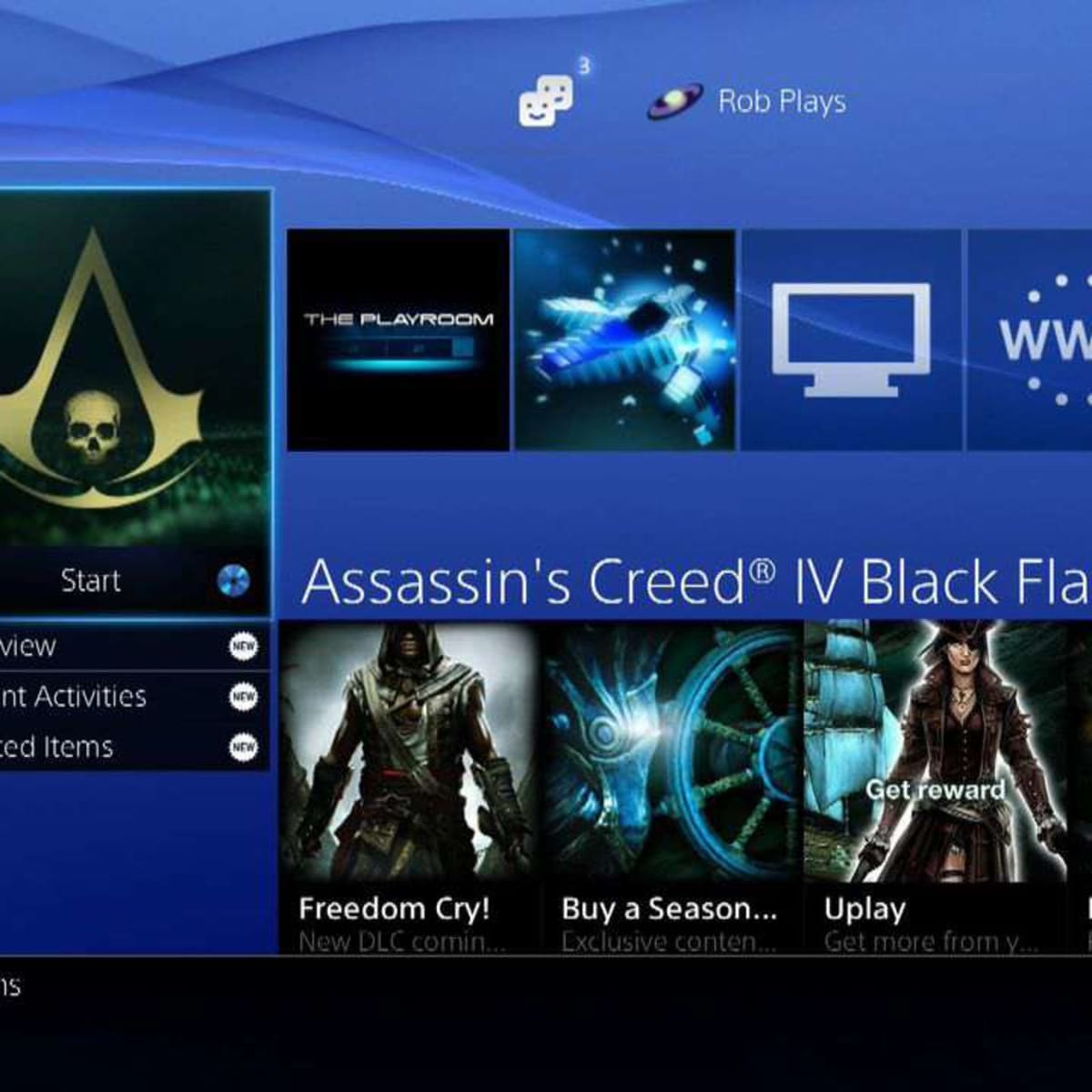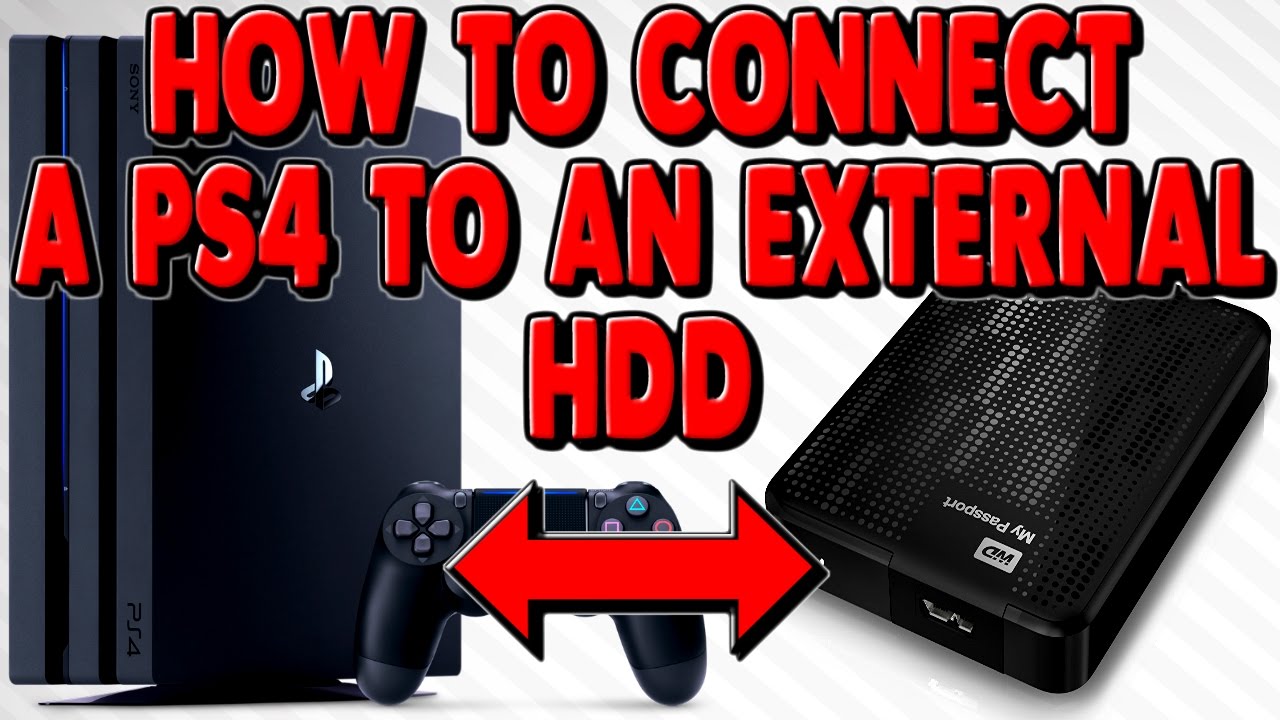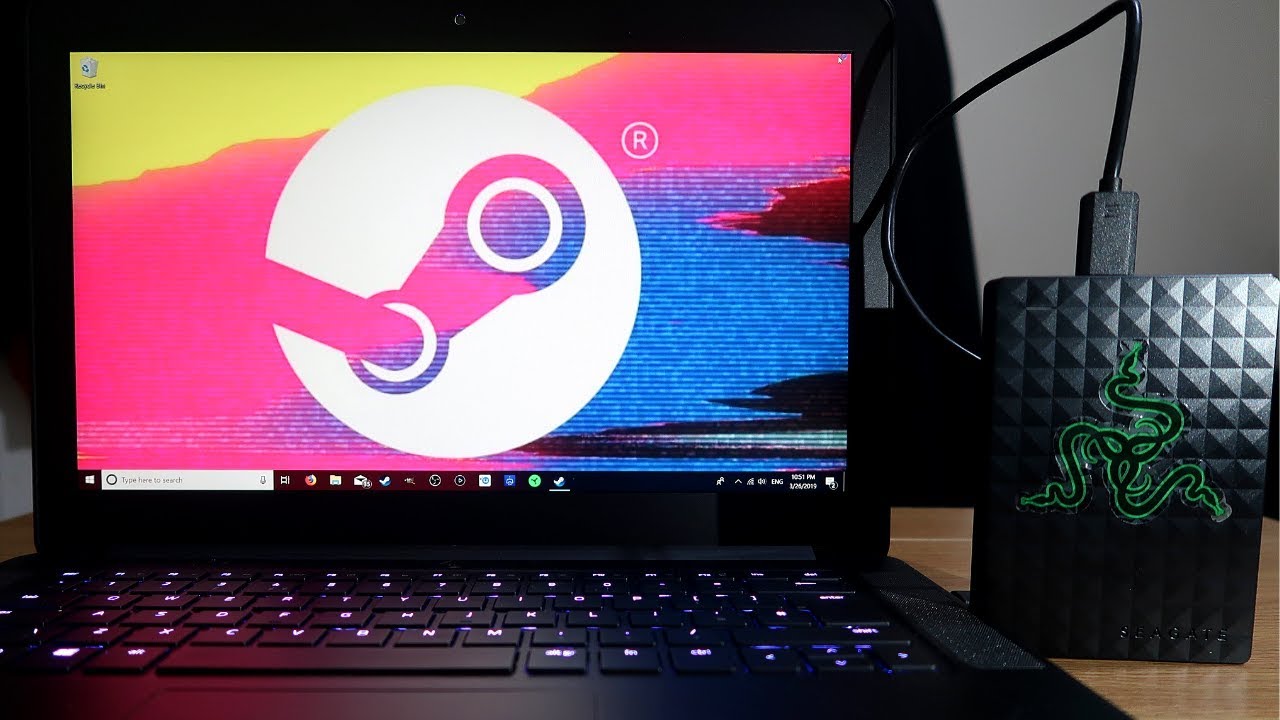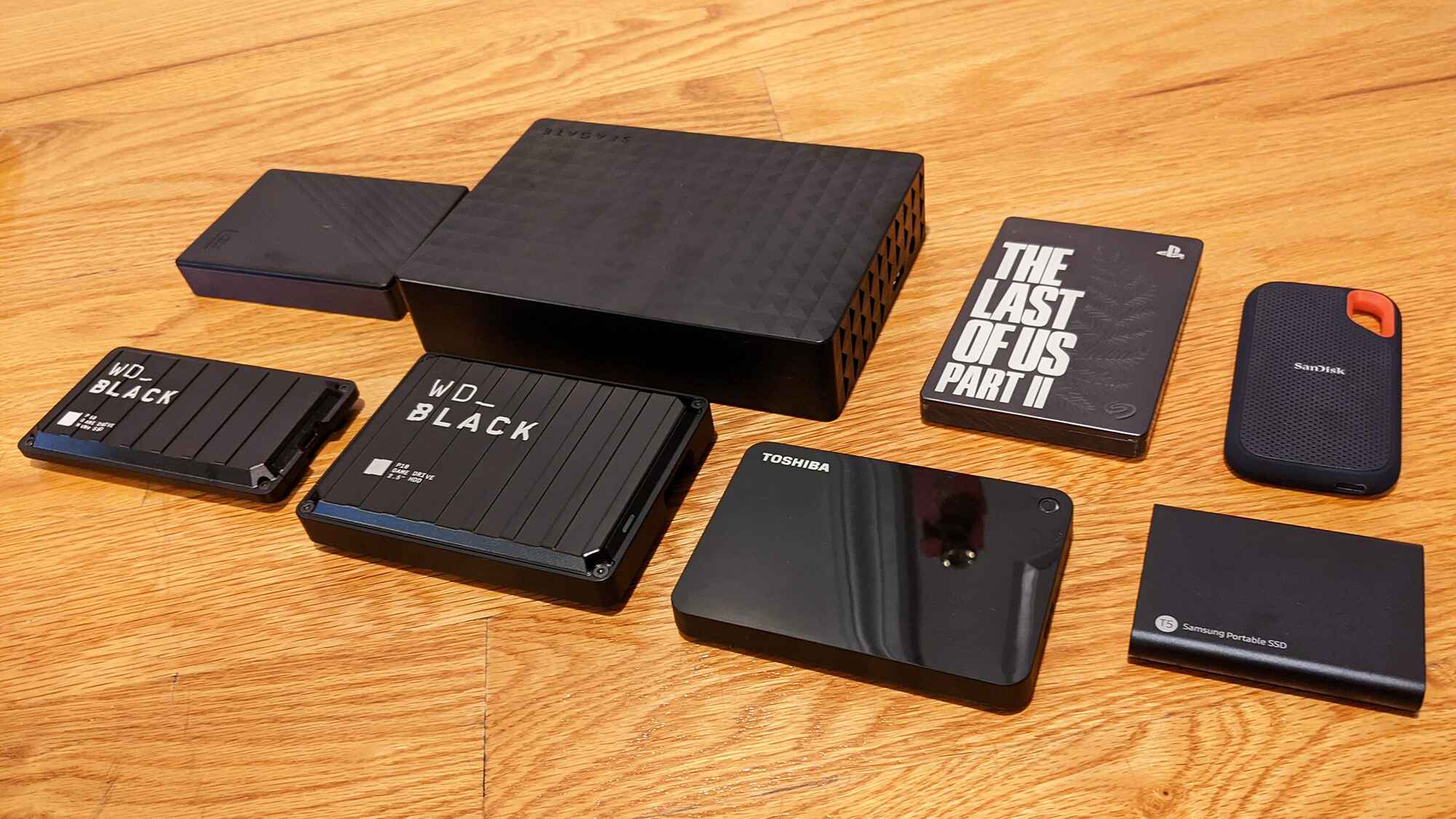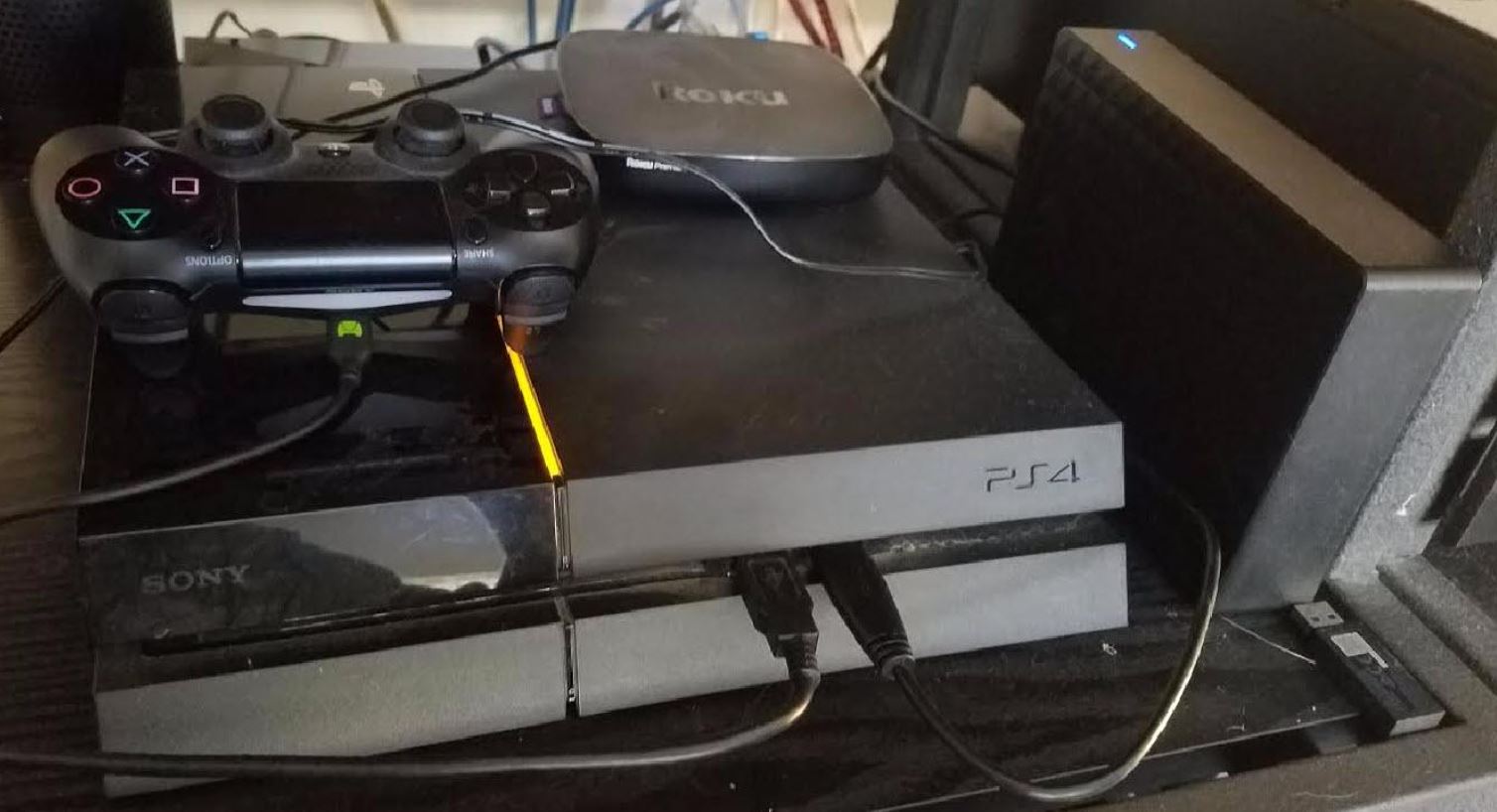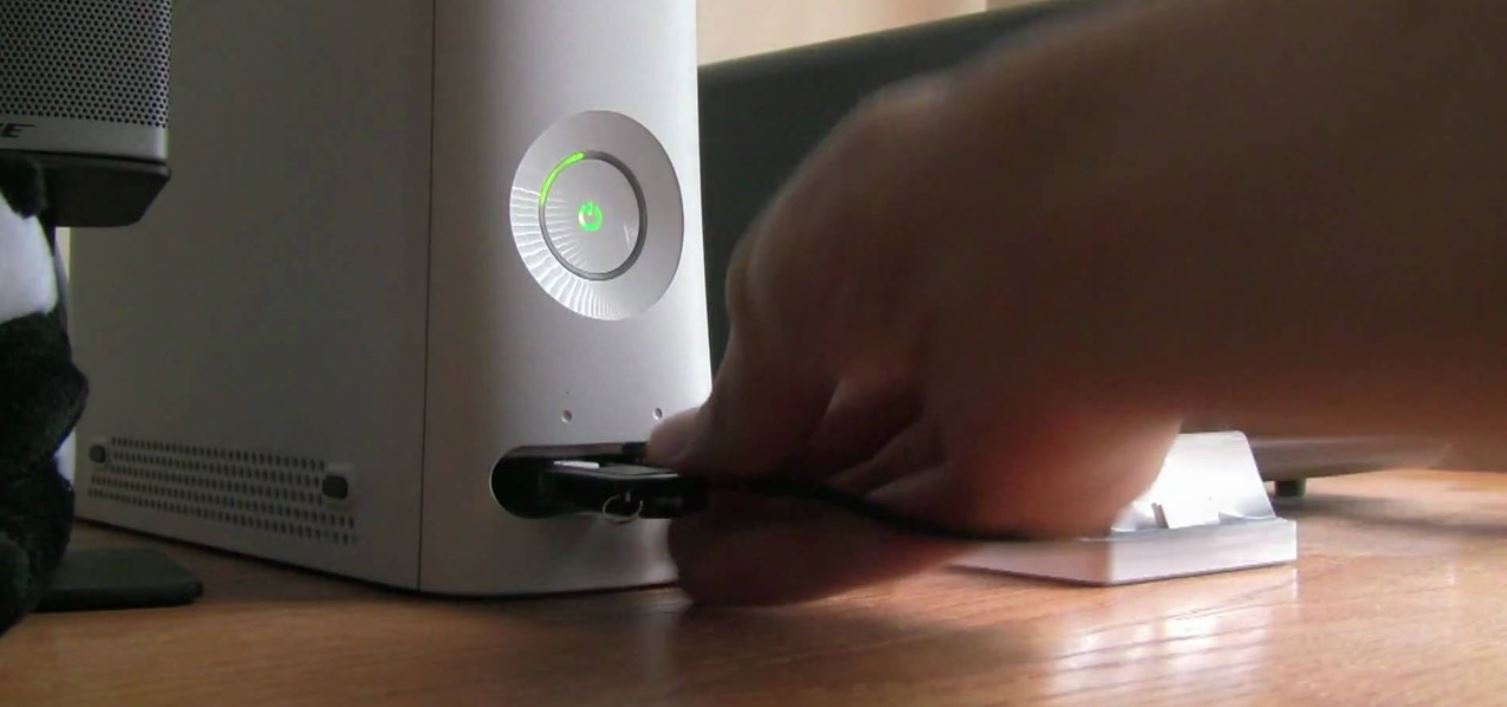Introduction
Gaming has become an increasingly popular form of entertainment, with new and exciting titles being released regularly. However, as the size and complexity of games continue to grow, so does the demand for storage space. Many gamers find themselves running out of space on their internal hard drives, leading to the need for alternative storage solutions.
One such solution is installing games on an external hard drive. An external hard drive offers ample storage capacity and portability, making it an ideal choice for gamers looking to expand their storage options. By installing games on an external hard drive, you can free up valuable space on your internal drive, ensuring a smoother gaming experience and allowing you to keep a larger library of games at your fingertips.
Besides the obvious benefit of increased storage capacity, installing games on an external hard drive offers several other advantages. One of the key benefits is the ability to easily transfer your games between different devices. Whether you’re gaming on a laptop, desktop, or gaming console, you can simply plug in your external hard drive and access your games without the need for time-consuming downloads and installations.
Another advantage of installing games on an external hard drive is the flexibility it provides. With an external hard drive, you can take your games with you wherever you go. Whether you’re traveling or visiting a friend’s house, you can bring your favorite games and play them on any compatible device. This convenience is particularly beneficial for gamers who frequently participate in LAN parties or gaming events.
Before you jump into installing games on an external hard drive, there are a few things to consider. Compatibility is an important factor, as not all games or consoles support external storage. It’s crucial to check the specifications and requirements of your games and gaming devices to ensure they can be installed and run from an external hard drive.
In this guide, we will walk you through the process of installing games on an external hard drive. Whether you’re a PC gamer or console enthusiast, we’ll provide step-by-step instructions to help you get started. We’ll also cover some troubleshooting tips to address common issues you may encounter along the way. By the end of this guide, you’ll be ready to harness the power of an external hard drive and expand your gaming possibilities.
Benefits of Installing Games on an External Hard Drive
Installing games on an external hard drive offers several benefits that can enhance your gaming experience. Let’s explore some of the key advantages:
1. Increased Storage Capacity: One of the primary benefits of using an external hard drive for game installation is the increased storage capacity it provides. Internal hard drives on computers and gaming consoles can quickly fill up, especially with the growing size of modern games. By utilizing an external hard drive, you can expand your available storage space and keep a larger library of games without worrying about running out of room.
2. Portability: External hard drives are portable and easy to carry, making them a convenient storage option for gamers on the go. Whether you’re playing on a laptop, visiting a friend’s house, or attending a gaming event, you can simply plug in your external hard drive and access your games without the need for reinstallation or extensive downloads. It allows for a seamless transition between different devices and locations.
3. Easy Game Transfers: Moving games between multiple devices can be a hassle, especially if you have large game files. With an external hard drive, transferring games becomes a breeze. You can easily transfer your games to another computer or gaming console by disconnecting the external hard drive from one device and connecting it to another. This eliminates the need for time-consuming downloads or physical copies, saving you both time and bandwidth.
4. Flexibility: An external hard drive offers unmatched flexibility. It allows you to play your games on any supported device, regardless of its storage capacity. Whether you’re gaming on a desktop computer, a gaming laptop, or a console, you can simply connect your external hard drive and play your games without limitations. This flexibility is particularly beneficial for gamers who frequently switch between different gaming setups or participate in LAN parties.
5. Backup and Security: Installing games on an external hard drive can also serve as a backup solution. By keeping your games stored on a separate device, you can protect them from potential data loss or corruption. In the event of a system failure, you can easily reinstall your games from the external hard drive without losing progress or having to redownload them.
6. Improved Performance: In some cases, installing games on an external hard drive can actually improve performance. This is especially true for gamers using older systems with slower internal hard drives. By transferring games to a faster external hard drive, you may experience reduced loading times and smoother gameplay, as the game data can be accessed more quickly.
With these benefits in mind, it’s clear that installing games on an external hard drive offers a range of advantages for gamers. From increased storage capacity to portability and flexibility, an external hard drive can revolutionize your gaming experience and provide a hassle-free way to manage and enjoy your favorite games without worrying about storage limitations.
Things to Consider Before Installing Games on an External Hard Drive
Before you start installing games on an external hard drive, it’s essential to take a few factors into consideration to ensure a smooth and successful gaming experience. Here are some key things to keep in mind:
1. Compatibility: Not all games and gaming consoles support installation and gameplay from an external hard drive. It’s crucial to check the specifications and requirements of your games and gaming devices to ensure they can be installed on an external drive. Some older consoles or certain games may only support installation on internal storage. In addition, check if your external hard drive is compatible with your gaming device to avoid any compatibility issues.
2. Storage Capacity: Assess your storage needs and choose an external hard drive with enough capacity to accommodate your games. Consider the size of the games you intend to install, as well as any future game expansions or updates. It’s recommended to have a significant amount of free space on the external hard drive to prevent running out of storage in the future.
3. Disk Speed: The speed of your external hard drive can impact game performance. Look for a hard drive with a high RPM (revolutions per minute) or an SSD (Solid-State Drive). These drives tend to offer faster data transfer rates, reducing loading times and improving overall gameplay experience. Keep in mind that a faster hard drive may come at a higher cost, so consider your budget accordingly.
4. Connectivity: Check the connectivity options of your gaming device and the external hard drive. Most modern devices support USB 3.0 or higher, which offers faster data transfer speeds compared to older USB versions. Ensure that your gaming device has adequate USB ports to connect the external hard drive. Some gaming consoles may also support other connection types, such as eSATA or Thunderbolt, so verify the available options for your specific device.
5. Power Requirements: Certain external hard drives require additional power to operate properly. Check if your chosen external hard drive requires a separate power source or if it can be powered solely through the USB connection. This information is crucial, particularly if you plan to use the external hard drive with a gaming console or a laptop, which may have limited power output through the USB ports.
6. File System Format: The file system format of the external hard drive is important for compatibility. Most gaming devices, including consoles and PCs, support the exFAT or NTFS file systems. Ensure that your external hard drive is formatted correctly to avoid any compatibility issues. It’s worth noting that formatting a drive erases all existing data, so make sure to back up any important files before formatting.
By considering these factors, you can make informed decisions and ensure that installing games on an external hard drive is a seamless and successful process. Taking the time to assess compatibility, storage capacity, disk speed, connectivity, power requirements, and file system format will help you avoid any potential issues and fully optimize your gaming experience.
Step-by-Step Guide to Installing Games on an External Hard Drive
Installing games on an external hard drive may seem daunting, but with the right steps, it’s a straightforward process. Follow this step-by-step guide to get started:
Step 1: Choose the Right External Hard Drive: Select an external hard drive with sufficient storage capacity and the appropriate connectivity options for your gaming device. Ensure that the hard drive is compatible with your gaming console or computer.
Step 2: Prepare the External Hard Drive: If the external hard drive is new, format it with the appropriate file system (exFAT or NTFS) according to the specifications of your gaming device. Formatting will erase all existing data, so ensure you have backed up any important files.
Step 3: Connect the External Hard Drive: Connect the external hard drive to your gaming device using the appropriate cable or port. Ensure that the connection is secure.
Step 4: Locate the Game Installation File: Locate the game installation file on your gaming device. This could be a physical game disc, a game file downloaded from a digital platform, or an installation file on your computer.
Step 5: Start the Game Installation Process: Run the game installation file and select the external hard drive as the installation location. Follow the on-screen prompts to proceed with the installation process. Accept any licensing agreements or terms of service if prompted.
Step 6: Wait for the Installation to Complete: Depending on the size of the game and the speed of your external hard drive, the installation process may take some time. Stay patient and allow the installation to complete without interruption.
Step 7: Verify the Installation: Once the installation is complete, verify that the game files have been successfully installed on the external hard drive. Open the file location where the game was installed and ensure that the game files are present.
Step 8: Test the Game: Launch the game from the external hard drive to ensure that it runs smoothly without any issues. Play the game for a while to ensure it functions properly.
Step 9: Repeat for Additional Games: If you have more games to install, repeat the process starting from Step 4 for each game. Choose the external hard drive as the installation location to keep your games organized and easily accessible.
Step 10: Enjoy Your Games: Once all your games are installed on the external hard drive, you’re ready to enjoy your gaming experience! Simply connect the external hard drive to your gaming device whenever you want to play your installed games.
Following these steps, you can successfully install games on an external hard drive and benefit from increased storage capacity, portability, and flexibility in accessing your favorite games. Remember to check and comply with any specific installation instructions or requirements provided by the game developers or gaming device manufacturers to ensure compatibility and optimal performance.
Troubleshooting Common Issues
While installing games on an external hard drive can be a relatively straightforward process, you may encounter some common issues along the way. Here are a few troubleshooting tips to help you overcome potential obstacles:
1. Insufficient Power: If your external hard drive is not receiving enough power, it may not function properly. Ensure that your gaming device or laptop can provide sufficient power through the USB ports. If necessary, connect the external hard drive to a separate power source or use a USB hub with external power to ensure adequate power supply.
2. Slow Game Loading Times: If you experience slow loading times when running games from an external hard drive, it may indicate a slow transfer rate. Consider upgrading to a faster external hard drive with higher RPM or an SSD. Alternatively, ensure that the USB port you are using supports fast data transfer speeds, such as USB 3.0 or higher.
3. Compatibility Issues: If you encounter compatibility issues, such as games not running or crashing on your gaming device, check the game’s system requirements and verify its compatibility with external storage. Some older games or consoles may have limitations or restrictions on using external storage for game installation. Additionally, ensure that your external hard drive is formatted with a compatible file system (exFAT or NTFS) for seamless compatibility.
4. Data Corruption: To avoid data corruption or loss, ensure that you safely disconnect the external hard drive from your gaming device by using the appropriate removal method. Abruptly removing the external hard drive during gameplay or while the games are still running can lead to data corruption. Always follow the proper procedure to safely eject or disconnect the external hard drive to minimize the risk of data loss.
5. Insufficient Storage Space: If you find yourself running out of storage space on your external hard drive, consider deleting or uninstalling games that you no longer play or need. This will free up space for new game installations. Additionally, periodically reviewing and organizing your game library can help manage storage space effectively.
6. Connectivity Problems: If you experience frequent disconnections or intermittent connectivity with the external hard drive, check the USB cable, port, or connections. A faulty cable or loose connection can disrupt the transfer of data and cause issues. Consider using a different USB cable or port to troubleshoot and ensure a stable connection.
7. Drive Corruption: In rare cases, an external hard drive may become corrupted, leading to data loss or inability to access files. To mitigate this risk, regularly back up the game files stored on the external hard drive. Utilize backup solutions and regularly create copies of your game files on another storage device or in the cloud.
If you encounter persistent issues or encounter unique problems not covered here, consult the support documentation or forums provided by the game developers, gaming console manufacturers, or the external hard drive manufacturer. These resources often provide specific troubleshooting steps tailored to their products and can help resolve more complex issues.
By following these troubleshooting tips and being proactive in managing and maintaining your external hard drive, you can ensure a smooth and trouble-free gaming experience with your installed games.
Conclusion
Installing games on an external hard drive offers a range of benefits for gamers, including increased storage capacity, portability, and flexibility. By utilizing an external hard drive, you can overcome storage limitations on your internal drives and expand your game library without sacrificing performance.
Before installing games on an external hard drive, it’s important to consider factors such as compatibility, storage capacity, disk speed, connectivity, power requirements, and file system format. Taking these into account will help ensure a successful installation process and optimize your gaming experience.
Following the step-by-step guide outlined in this article, you can easily install games on an external hard drive and enjoy the convenience of easily accessible and transferable games. Remember to verify compatibility, choose the right external hard drive, connect it properly, and follow the installation process for each game. Troubleshooting common issues, such as power supply, loading times, compatibility, data corruption, storage space, connectivity, and drive corruption, will help resolve any potential challenges you may encounter along the way.
Installing games on an external hard drive opens up a world of possibilities for gamers. With ample storage capacity, portability, and flexibility, you can expand your gaming library, easily transfer games between devices, and enjoy a seamless gaming experience wherever you go. By making use of an external hard drive, you can maximize your gaming potential and ensure that you never run out of space for your favorite games.
So, grab your external hard drive, follow the instructions, and start enjoying the benefits of installing games on external storage. Enhance your gaming experience, keep your games organized, and never worry about storage limitations again.







